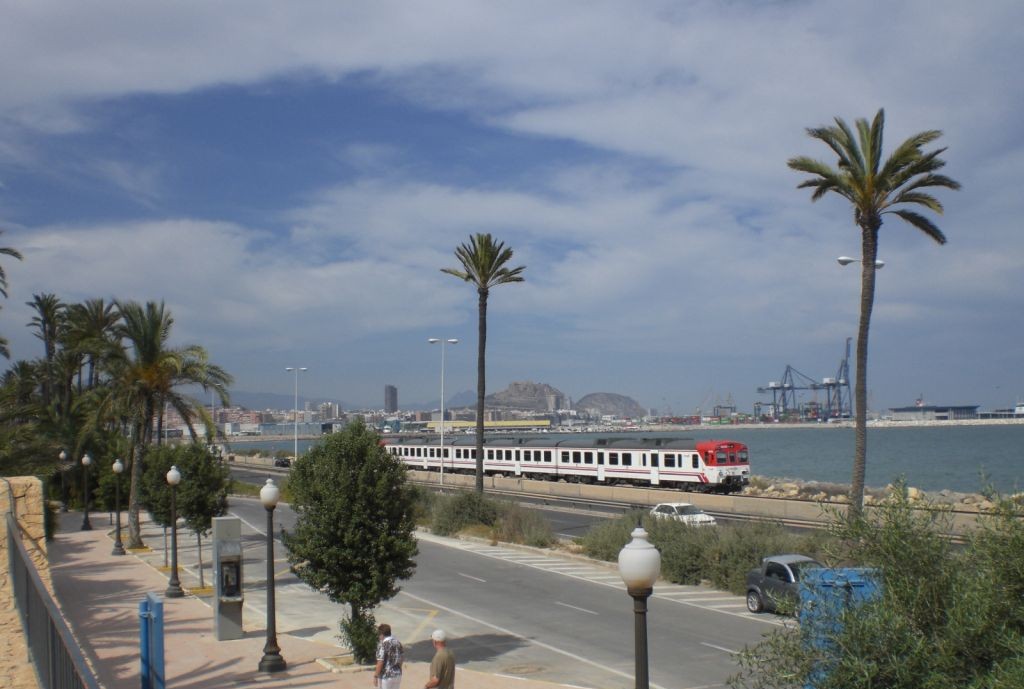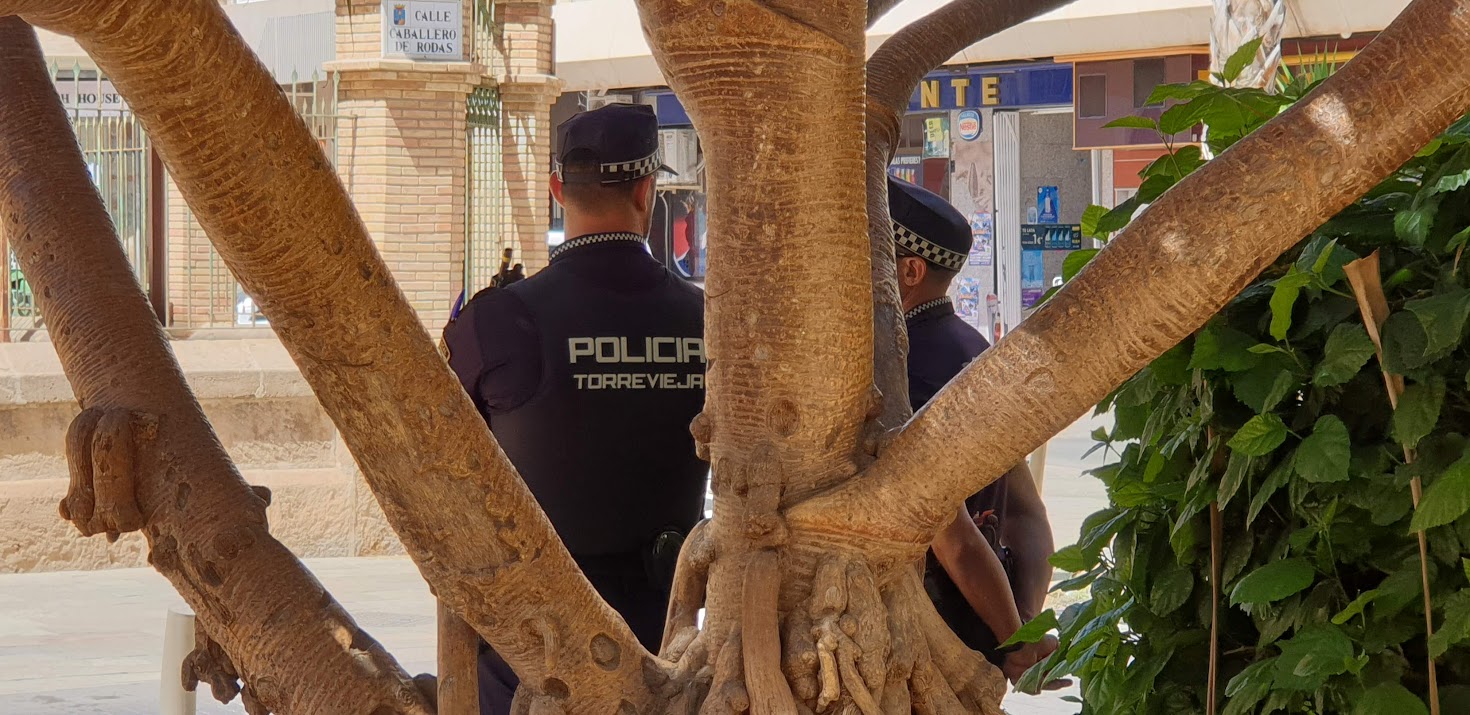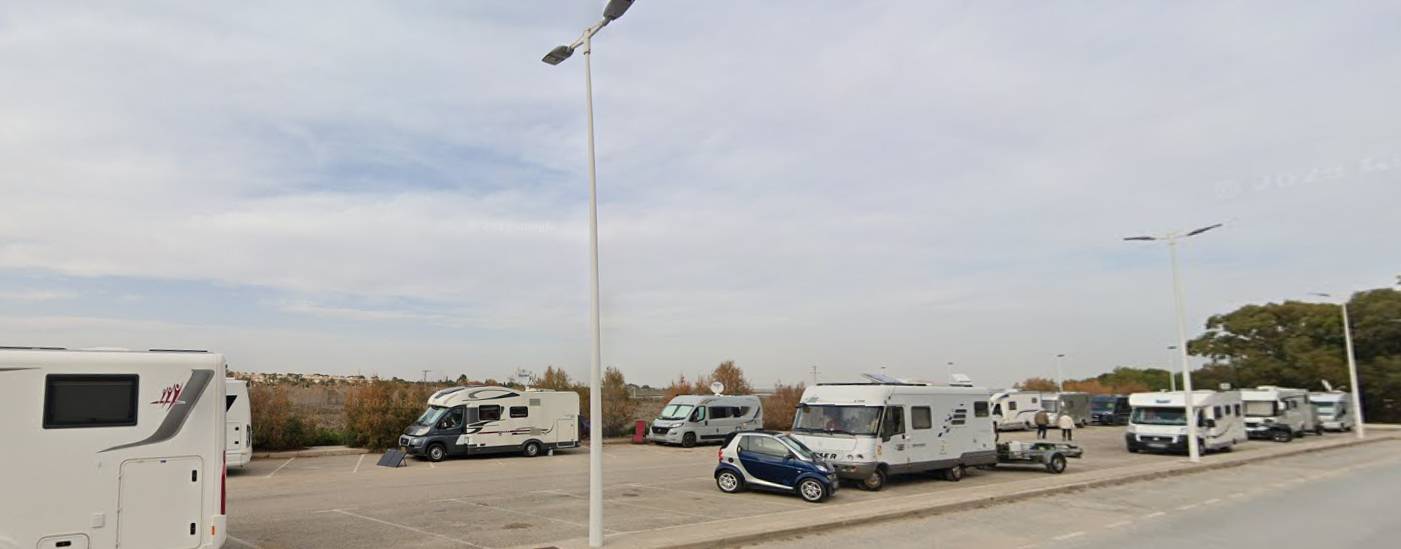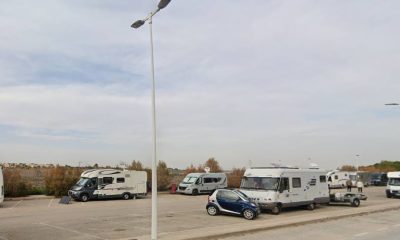Costa Blanca
In 2024, more than 2.8 million people ride the Alicante commuter train

Renfe moved more than 2,886,000 people on the Alicante Cercanías lines in 2024. A rise of 4.6% compared to 2023, which means 127,000 more passengers. The company says this is because free passes for people who use Cercanías a lot have been extended.
People who want to get to work or school in Alicante prefer to take the commuter trains, according to Renfe. They are also popular with people who want to see the beaches or all the tourist spots during the Les Fogueres de Sant Joan celebration.
The main train line in Alicante is made up of two lines. Line C-1, which goes from Murcia del Carmen to Alicante, goes through towns like Beniel, Orihuela, Callosa de Segura, Albatera-Catral, Crevillent, Elx, and Torrellano. Line C-3, which goes from Alicante to Sant Vicent Centre station, stops at the University of Alicante on its way.
A record number of people took Renfe
In 2024, more people than ever before decided to travel with Renfe around the world. By the end of the year, the public operator had moved more than 537 million people between public and private services, which was a record for the company. The total number of new customers for private services (AVE, Avlo, Alvia, Euromed, and Intercity) and public services (Cercanías, Media Distancia, Ancho Métrico, and Avant) is 14 million more than the previous year. This is a 2.7% rise.
Renfe had 527.9 million customers in 2006, which was the highest number ever. There is now more competition in the train industry than there was 18 years ago, but Renfe has still been able to raise this number. The rise in passengers on commercial services is especially noteworthy. This is 14.4% more people than in 2023, when 35.2 million people picked AVE, Avlo, Alvia, Euromed, and Intercity.
They say that these numbers show that Renfe is still in charge on lines where the market is open, especially because of “the many destinations, the high frequency, the trust in Renfe trains, and government programs like Verano Joven and free season tickets for regular customers of Cercanías, Rodalies, and Media Distancia.”
The company also talks about the S-106 trains that started running on May 21. These trains have made it possible for more seats to be added to the Avlo services, which provide fast links between Madrid, Aragon, Catalonia, the Valencian Community, and Murcia. Renfe’s high-speed trains have carried 25.9 million people, which is 22.3% more than the year before.
More than 501.9 million for state services
Renfe’s public services had more than 500 million passengers a year for the first time, which was their biggest volume ever. On the Cercanías, Media Distancia, Ancho Métrico, and Avant trains, 501.9 million people rode, which is almost 10 million more than in 2023.
The biggest jump was in the commuter train networks, which carried over 442 million more people than the previous year, or almost 7 million more.
Avant and Media Distancia also saw growth in the same way. After moving 13.6 million people, 8.1% more than the previous year, Avant (High Speed Medium Distance) continued its upward trend that began when it was first built, excluding the pandemic time. And Media Distancia said that 39.9 million people rode its trains in 2024, which was 6.2% more than in 2023 and 66% more than in the numbers before the pandemic, when 15.9 million more people rode.
The ‘Carbon Neutral’ certification from AENOR means that Renfe’s electric trains, which carry thousands of people every day, don’t produce any direct emissions and use 100% renewable electricity. The public operator’s goal is to reach zero emissions by 2050.
Discover more from Costa Blanca Daily
Subscribe to get the latest posts sent to your email.
Costa Blanca
Alicante lawyer sentenced to prison for deception

A 44-year-old lawyer in the city of Alicante was given eleven months in prison by the Alicante Provincial Court for lying to a client. He talked her into hiring him as a professional for a number of property and tax matters, then charged her for his services without doing the work that they agreed to do.
The lawyer admitted to stealing money and came to a deal with the public prosecutor’s office and the private prosecution. This means that the court believes he is still responsible for the crime.
The court agrees to use the mitigating factor of undue delay to account for the time that has passed between the crimes and the hearing.
There is information in the decision that the defendant used the fact that he was the cousin of the person who was hurt and trusted by that person to get her to hire him as a lawyer.
So, in May 2017, he was able to get the client to give him his first case, which was a law issue related to an inheritance from her parents. To begin, the accused asked her to give him 950 euros right away as payment for his fees.
Later, in 2018, he persuaded the person who was hurt to send him several amounts of money: 12,700, 3,200, 4,000, and 1,500 euros. This was for another matter related to paying the property transfer tax. He even sent her the form that was filled out, making it look like he had taken care of the bankruptcy before the Tax Agency, even though he hadn’t.
Later that same year, she was able to get him to send her another 2,004 euros so that she could file an appeal against having to pay capital gains tax on a house she had sold for less than she paid for it. When it came time to pay the VAT tax in 2019, the same thing happened.
The court decision said that the lawyer “took all of the money and used it for his own purposes without keeping the promises of the agreed professional arrangements.”
In addition to the 11-month prison sentence, the judge said the accused must pay the injured client 21,523 euros to cover the payments they got.
Discover more from Costa Blanca Daily
Subscribe to get the latest posts sent to your email.
Costa Blanca
Torrevieja Council may appeal the decision that it’s guilty of harassing a police officer

Torrevieja City Council was “surprised” by the Constitutional Court’s decision that holds the City Council responsible for the actions of a local police officer who was harassed by his superiors after reporting wrongdoing but protects the officer. Councillor Federico Alarcón said today after reporting on the matters approved by the local government board.
The councillor said that they were surprised because the High Court of Justice and the Supreme Court “had repeatedly ruled in favour of the City Council” up until now. Now, they said, there has been “a 180 degree turn.”
“We weren’t expecting it,” Alarcón admitted. He also said that the City Council is still processing its shock and is looking over “this voluminous ruling” to see if there is a way to appeal it “following the trail of what the TSJ and the Supreme Court have said.” This depends on whether the legal reports say it’s possible, because if they don’t, “we are not going to spend money from the people of Torrevieja on seeking this subsequent aid.” Since there is no way to challenge the Constitutional Court’s decisions, it would go to a European court.
The Constitutional Court says that there was “institutional harassment” and that the local government, which is led by Eduardo Dolón, did not do anything to stop the abuse of the person who was affected. So, it unanimously upholds an appeal for protection filed by a local police officer from Torrevieja who said that the officers were harassing him at work. It also says that the City Council must pay 95,816 euros in damages, plus interest for not investigating and harassing the agent.
Between April 2013 and September 2016, she was harassed after she told some of her coworkers about problems with not keeping track of fine money and carrying out selective checks in public places to have fun.
Eight years ago, the agent began the legal fight. He had to leave the Torrevieja Local Police to take a new job. In the first place, the Court of First Instance agreed with him, and the Constitutional Court also did the same.
The City Council of Torrevieja took their case to the High Court of Justice of the Valencian Community, which agreed with them. The agent then took the case to the Supreme Court, but it was turned down. But he insisted on going to court, even though it would cost him more than 10,000 euros.
Discover more from Costa Blanca Daily
Subscribe to get the latest posts sent to your email.
Costa Blanca
Santa Pola eliminates the presence of illegal camping

According to Ana Blasco, the Councillor for Citizen Security, the growing number of caravans in Cabo de Santa Pola was always a worry for the governing team because it caused problems without being possible to do anything about it.
Blasco said that they are already starting to see the results of the work that the Local Police and the Traffic Subsector of the Civil Guard of Alicante have been doing together since October, when they agreed to a new set of rules. This deal, which was approved by the whole City Council, spells out what each security group is responsible for in different parts of the municipality, like the port roads, the Camino del Cabo, and the Camino del Faro.
With the new protocol, the Local Police are now in charge of all key areas. This means that they can work more effectively in the most sensitive areas. One of the first steps that was taken was to put up signs at the two main entrances to the Cabo path, at the Cadena and at the Virgen del Rosario chapel, making it clear that cars wider than 2.20 meters are not allowed. This directly affects motorhomes. Blasco also said that the local police patrols are running a campaign to make caravan users more aware of the fact that they are not allowed to use the road and to remind them how important it is to follow the rules in a natural area that is protected.
Meanwhile, José Miguel Zaragoza, the Chief Commissioner of the Local Police, said that these steps have led to a “zero presence of caravans” in the Cape area, though cars still drive in sometimes because they don’t see the signs. When this happens, the patrols act right away to let people know that it’s not allowed. Zaragoza has also said that protecting the environment is very important because of the chance of fires and harm to the protected plants and animals in the area. To sum up, the Local Police of Santa Pola and the Local Police of Elche will work together to protect the whole coastline below the cape.
Discover more from Costa Blanca Daily
Subscribe to get the latest posts sent to your email.
-

 Costa Blanca2 days ago
Costa Blanca2 days agoMeet the ‘Eagle’ pilots this weekend
-

 Costa Blanca2 weeks ago
Costa Blanca2 weeks agoTwo men are caught by the National Police robbing a house in Alicante
-

 Costa Blanca2 weeks ago
Costa Blanca2 weeks agoElche man detained on suspicion of drug trafficking
-

 Costa Blanca2 days ago
Costa Blanca2 days agoSan Javier will host the largest air festival of the year celebrating 40 years of the Eagle Patrol
-

 Costa Blanca2 weeks ago
Costa Blanca2 weeks agoDozens of tractors parade through Valencia’s streets as a protest against unfair competition
-

 News1 week ago
News1 week agoA court rules against Ryanair’s carry-on bags policy
-

 Costa Blanca2 weeks ago
Costa Blanca2 weeks agoZenia Boulevard Celebrates a Valentine’s Day for Everyone
-

 Costa Blanca1 week ago
Costa Blanca1 week agoIn 2024, more than 100,000 people visited museums in Benidorm
















